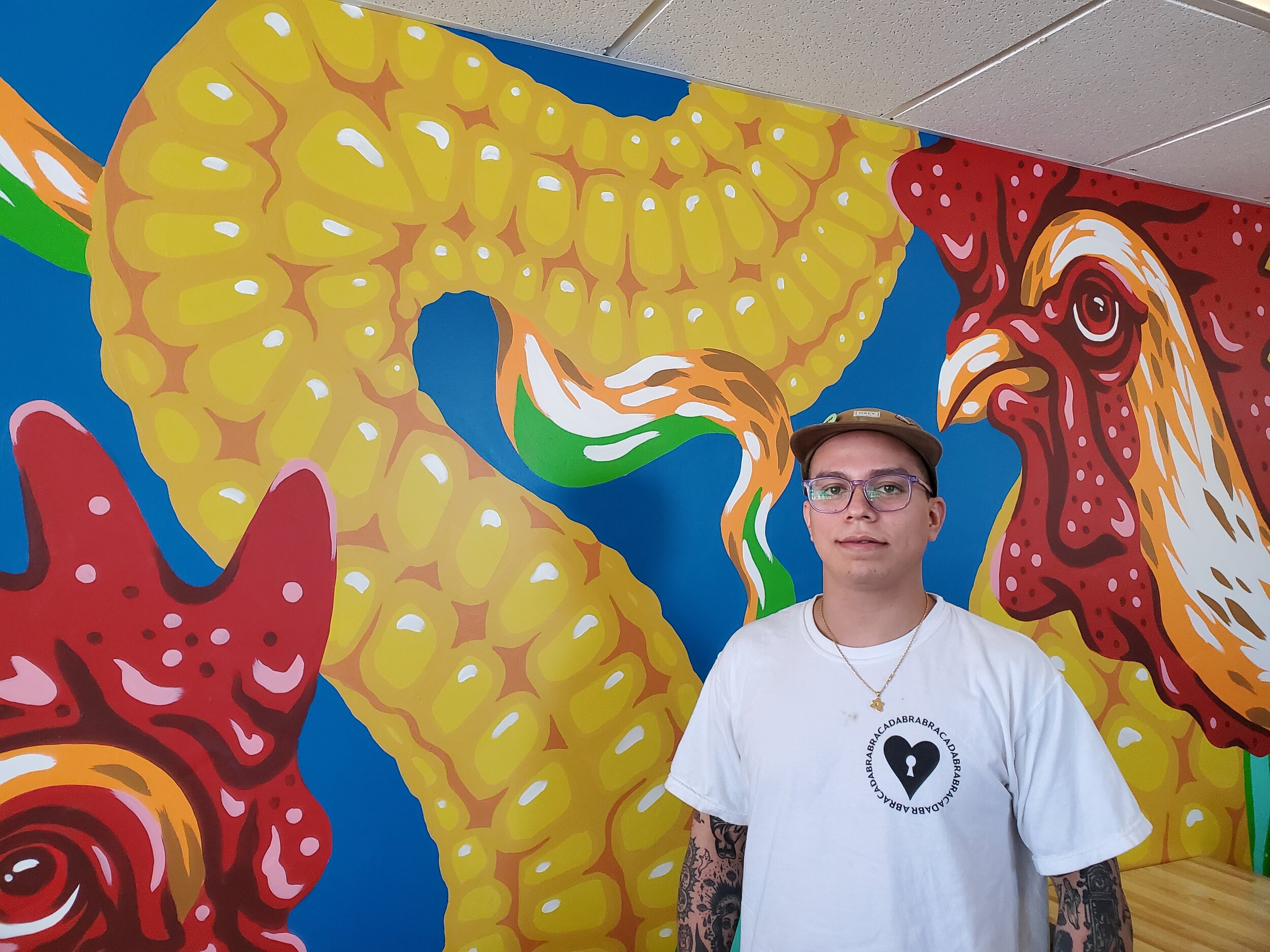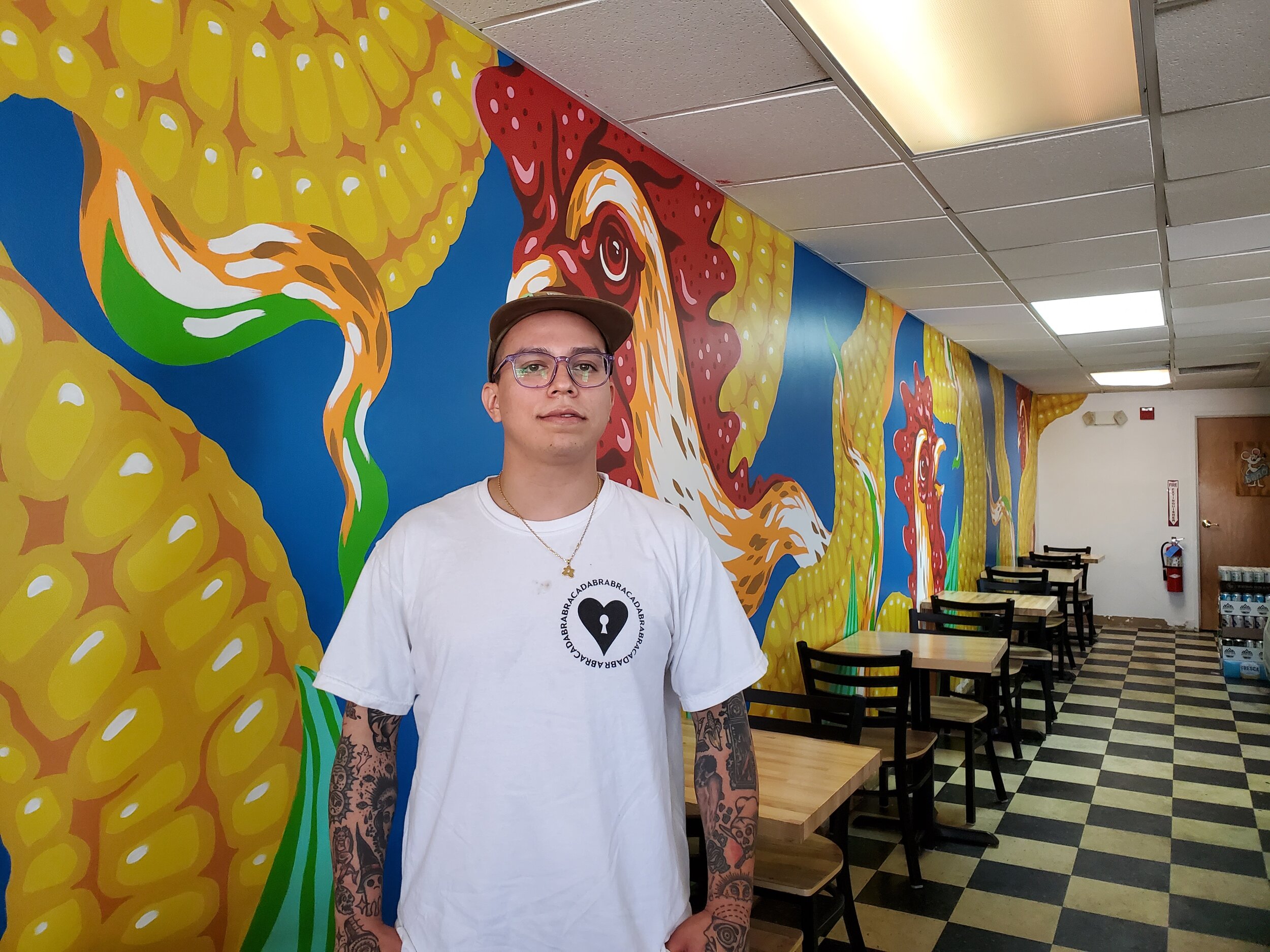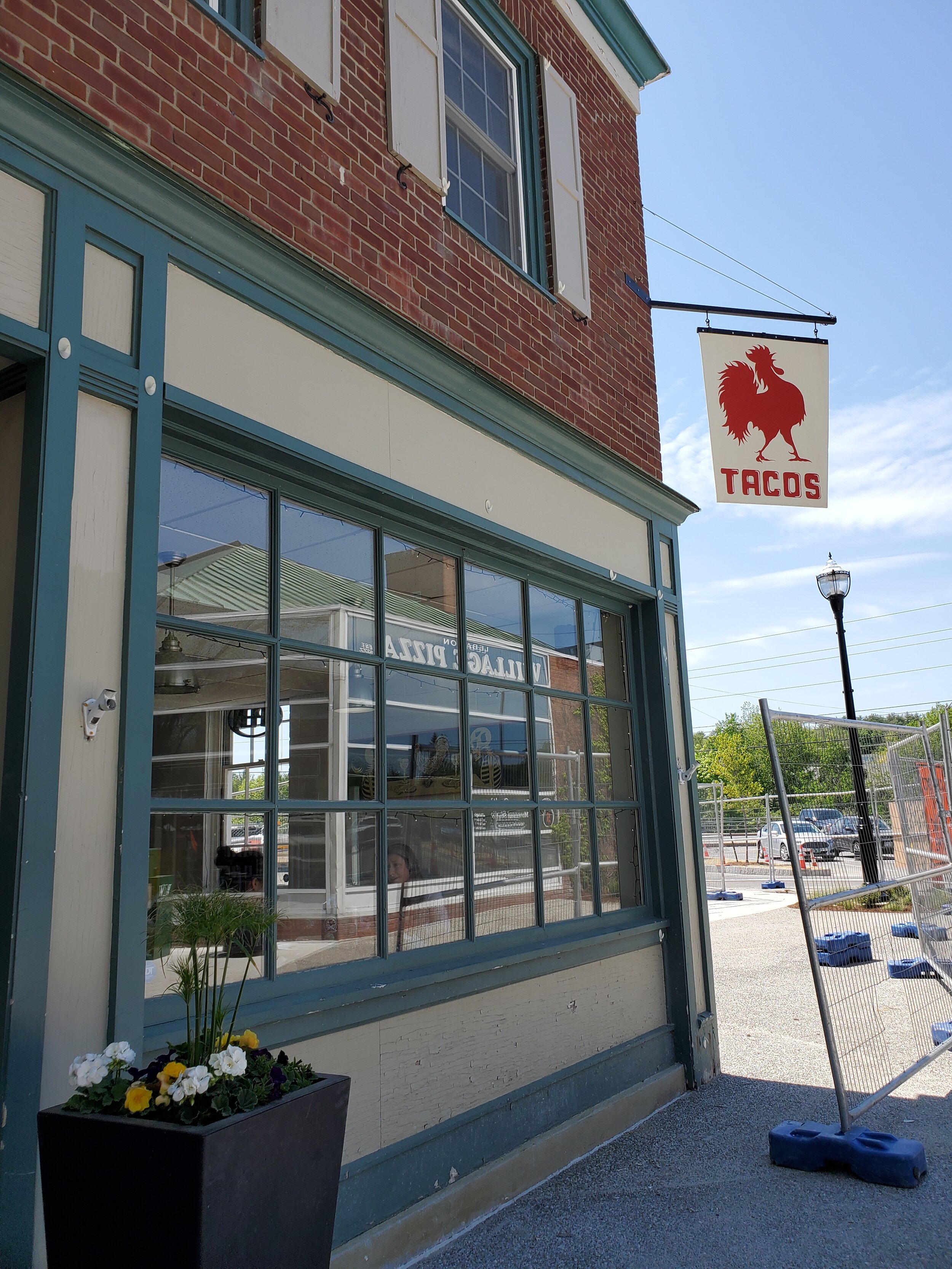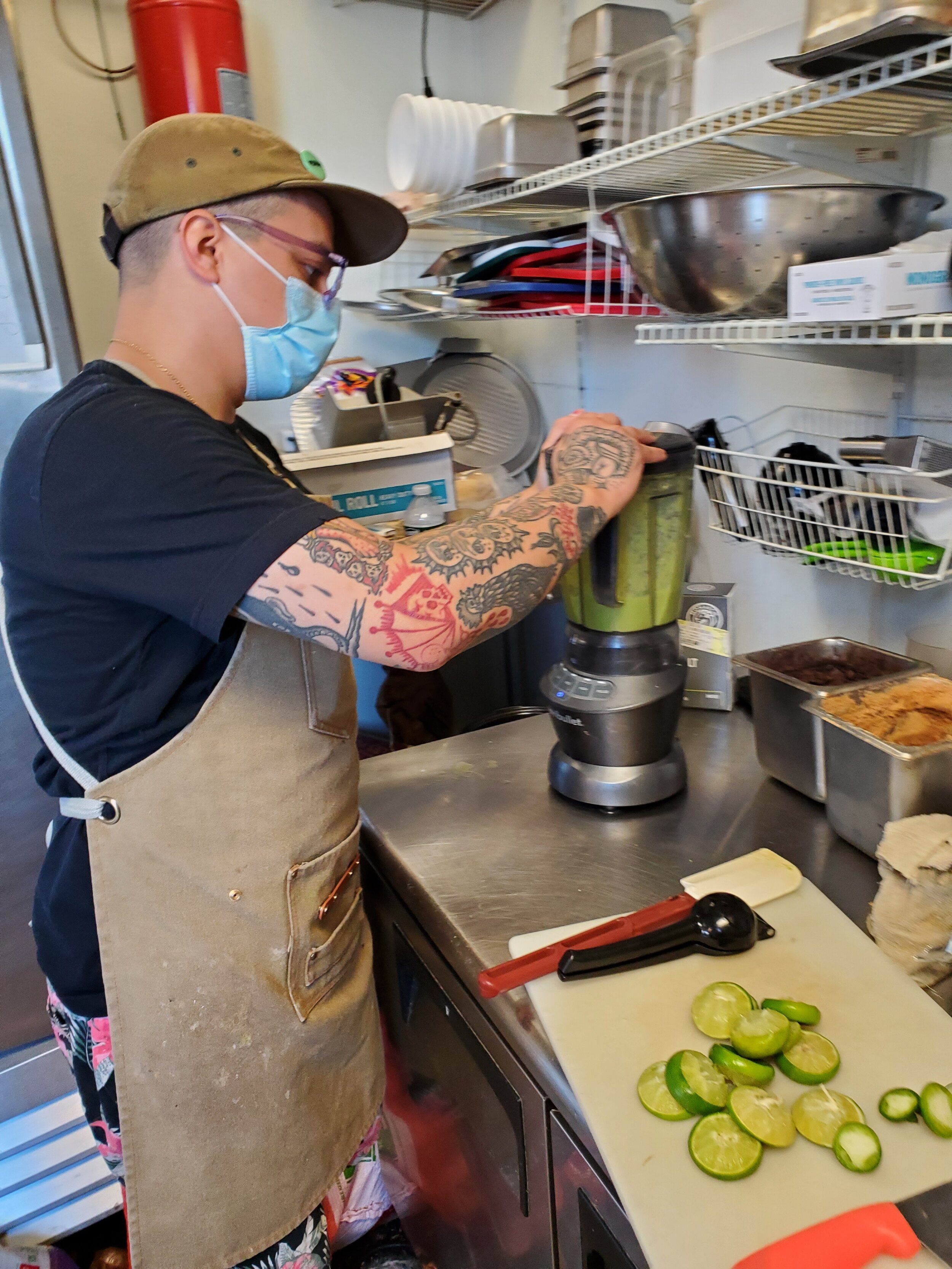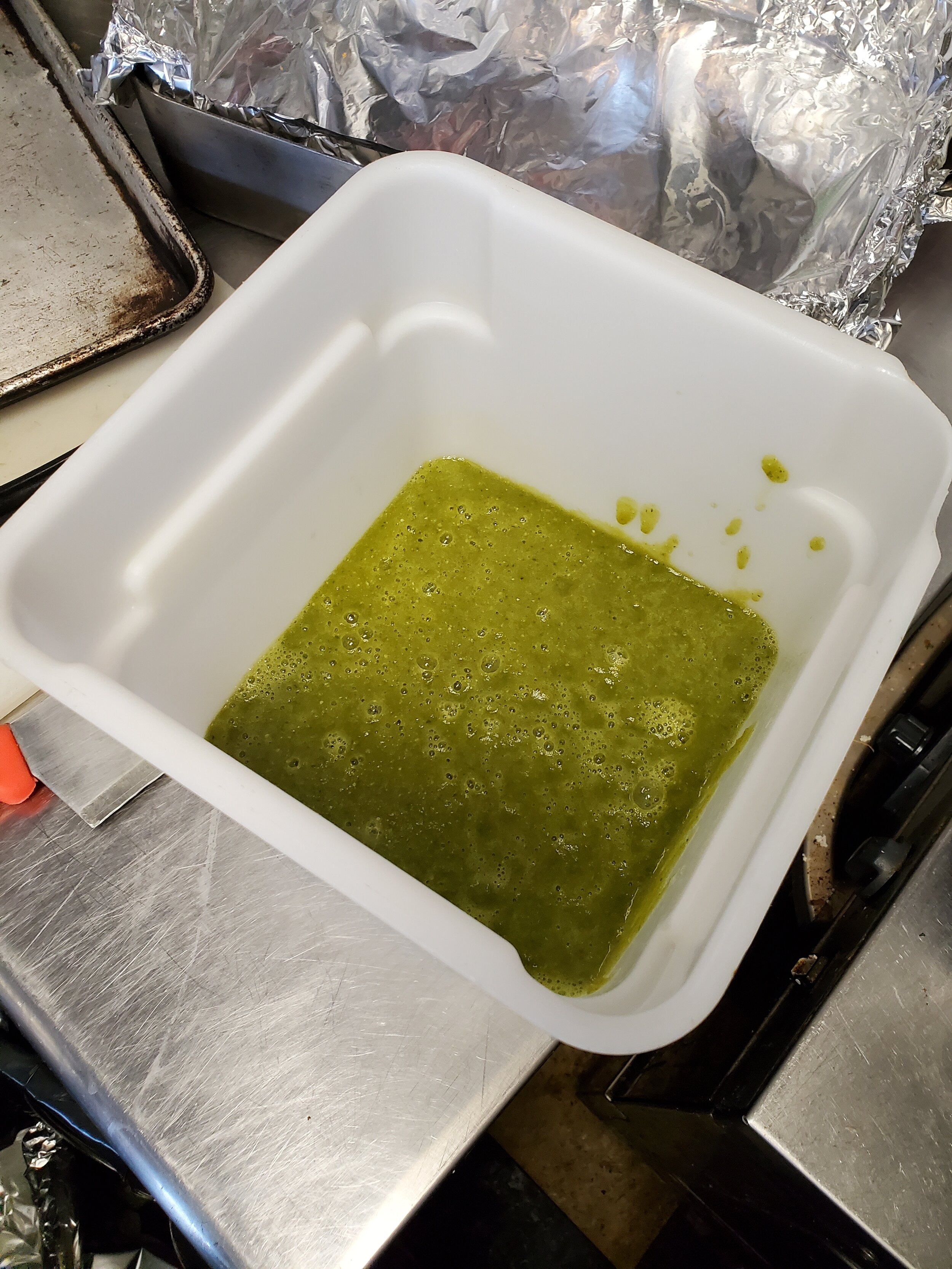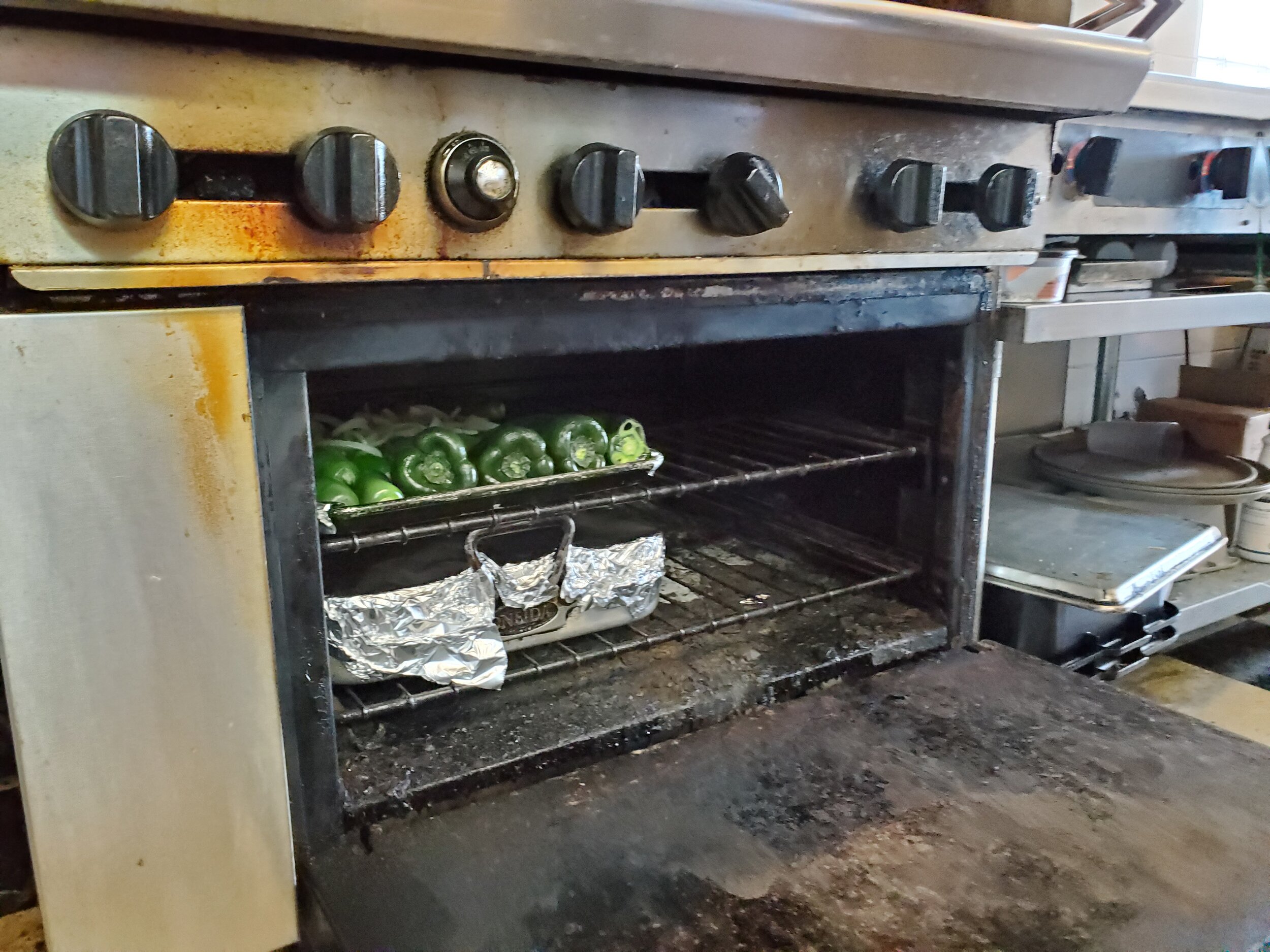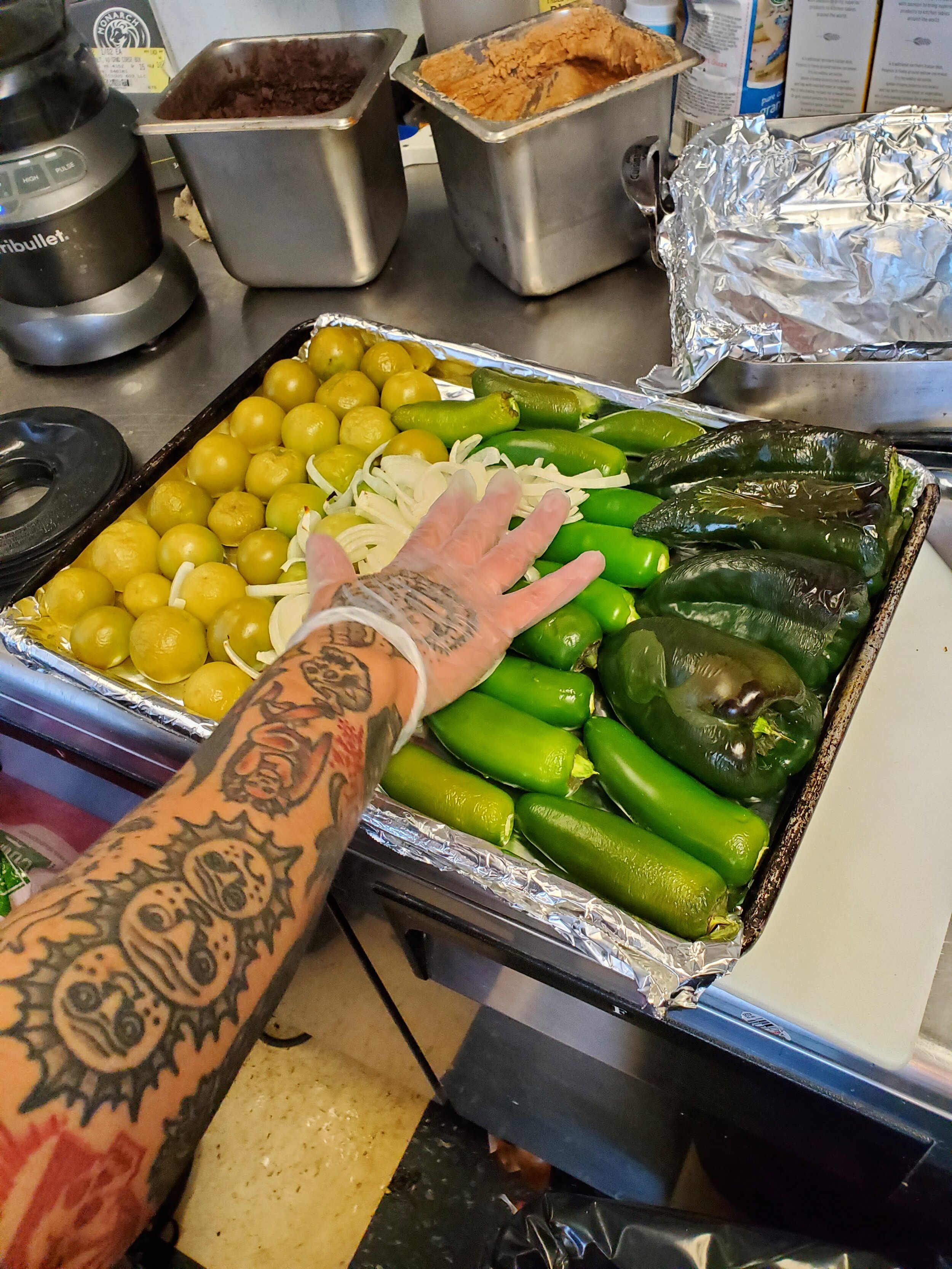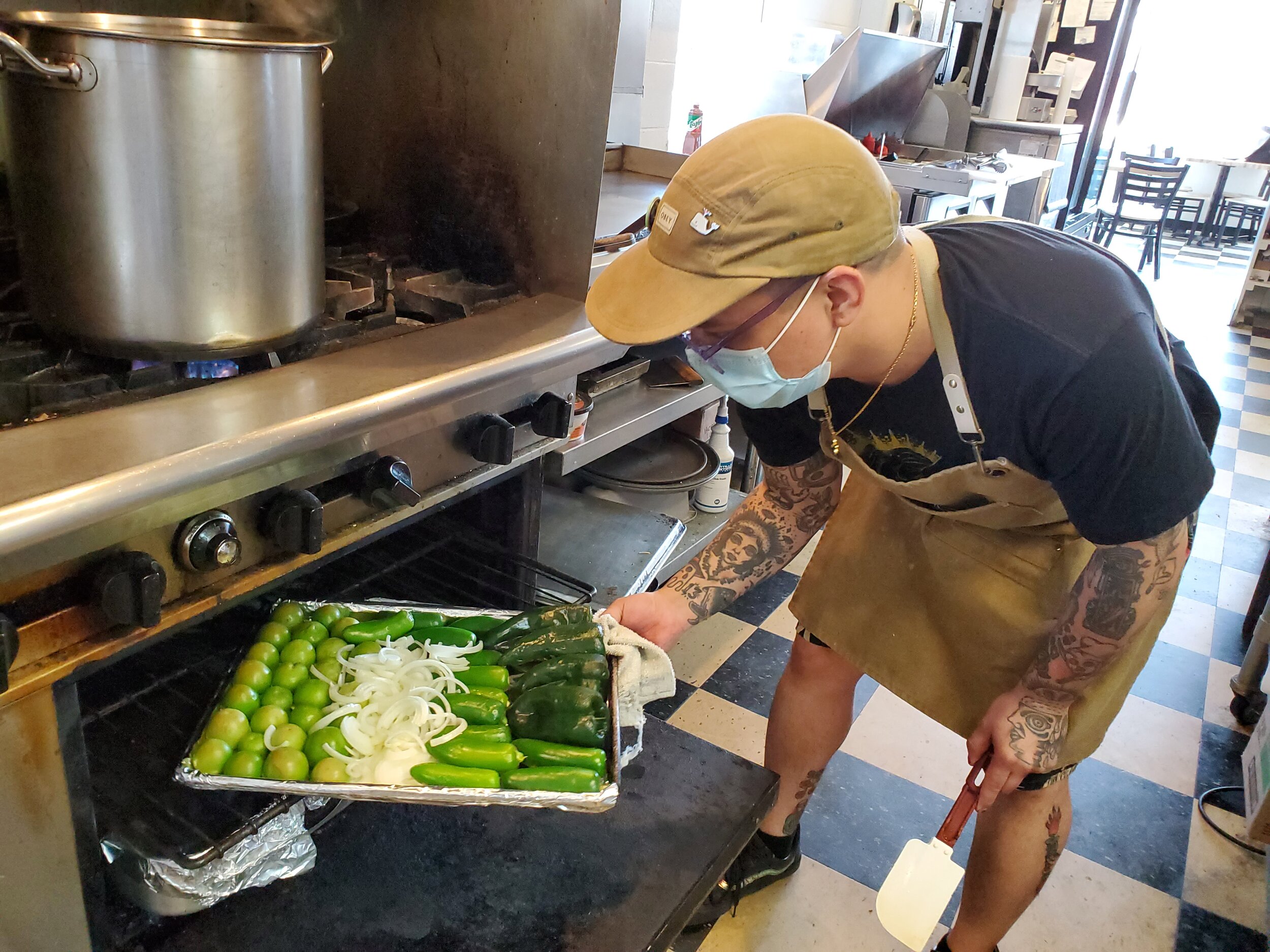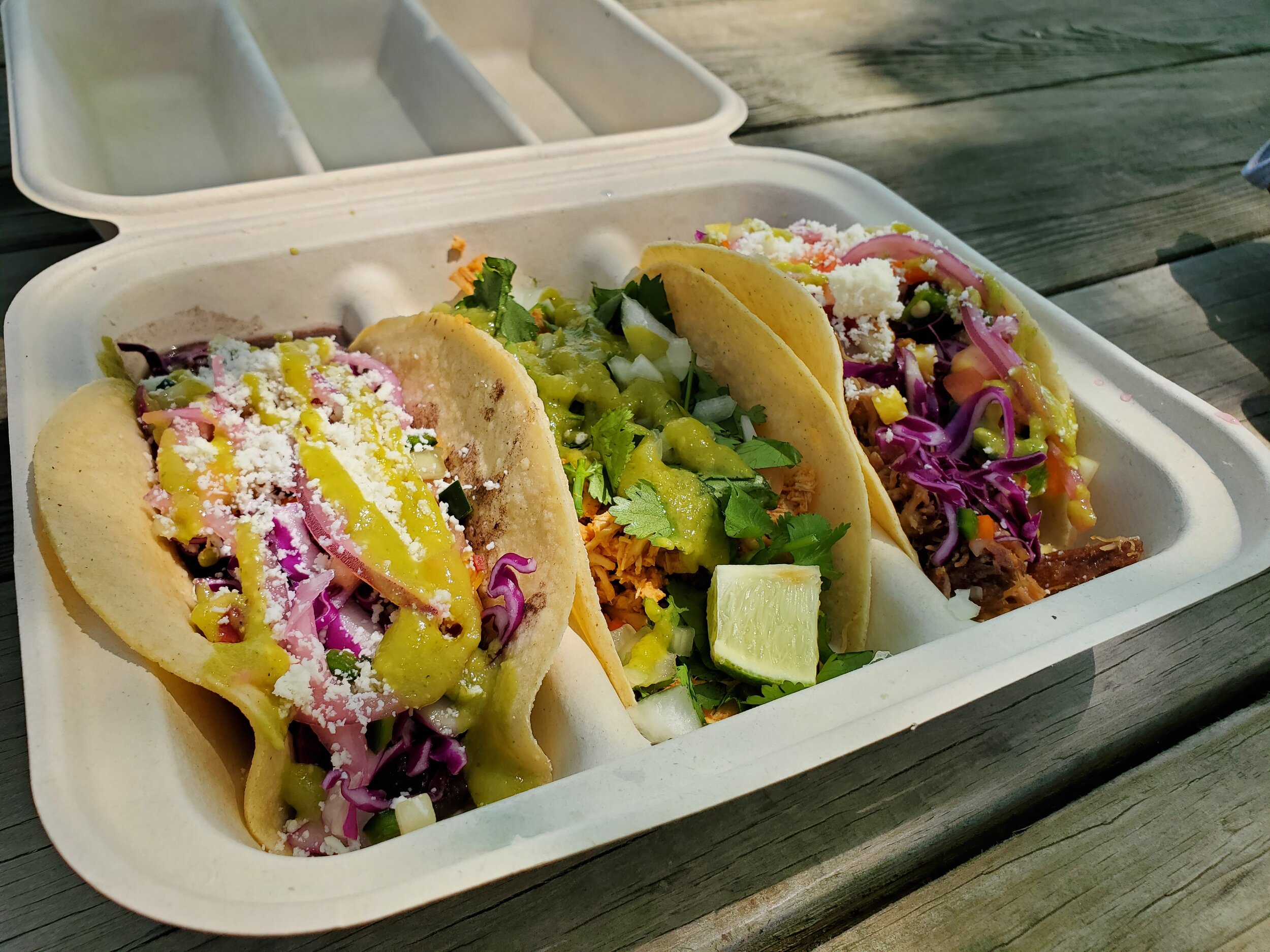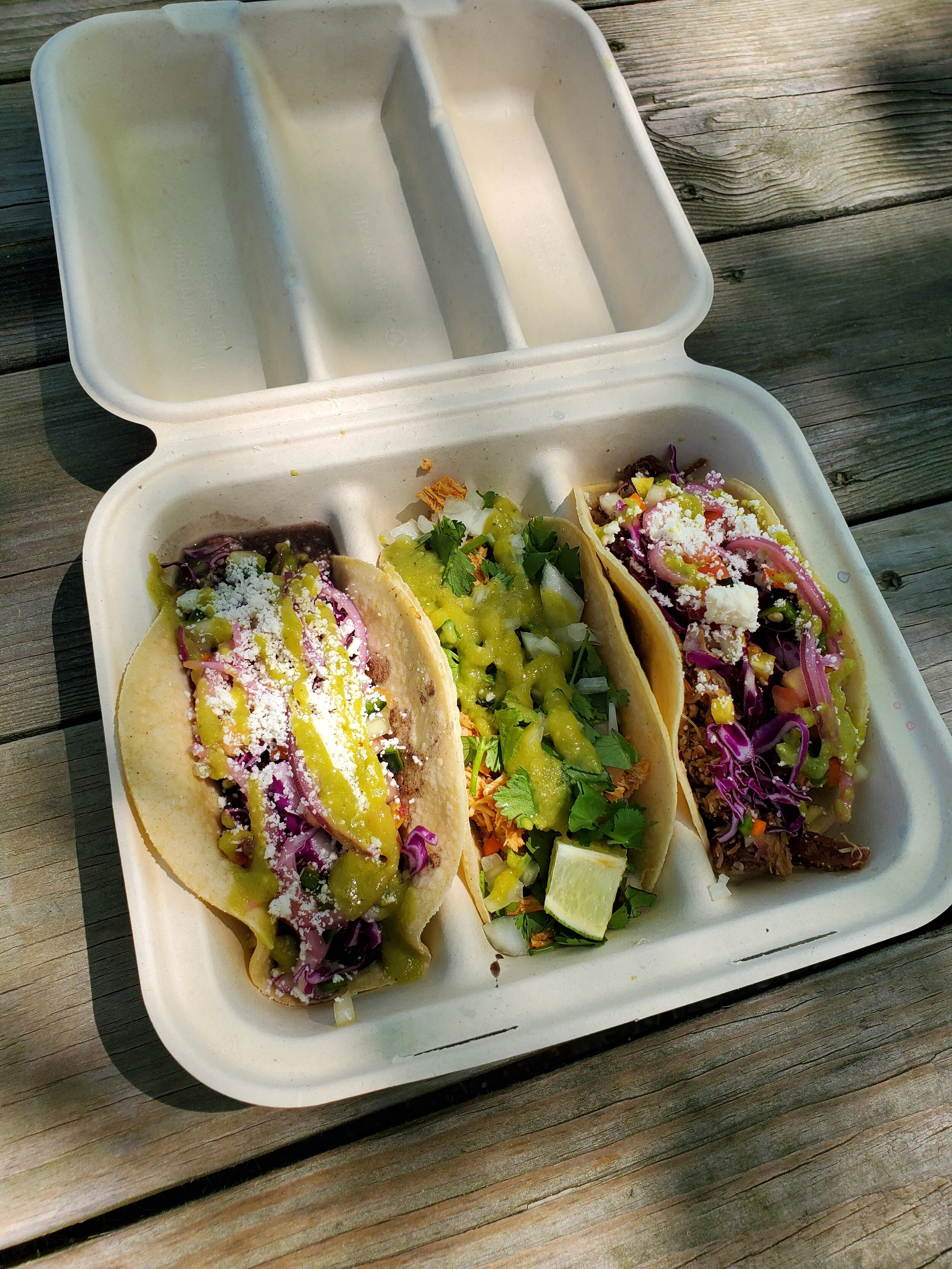Eddie Morán at Lalo’s Taqueria in Lebanon.
Daniela Allee/NHPR
More than just a place to eat, local restaurants provide a taste of home for people through food and connections made with the folks who run them. This was never so evident as when the pandemic closed many of these gathering places, some for good.
In "The Flavors of Our Neighbors" ; "Los Sabores de Nuestros Vecinos", a limited weekly series comprised of multimedia stories that highlight Latino restaurant owners, we learn how these entrepreneurs have not only weathered the pandemic but found ways to thrive and continue to provide a sense of community for their customers.
This project was developed through a collaboration between leaders of Latino communities in New Hampshire and media partners in The Granite State News Collaborative. This team has met twice a month for nearly a year, working together to find new ways for media and community to co-produce, communicate and learn from each other. The stories, audio and video for this project were reported and produced by Daniela Allee of NHPR; and Jasmine Torres Allen, Oscar Villacas, Kevin Genao and Esmeldy Angeles of First Gen Multimedia.
By Daniela Allee
NH Public Radio
Eddie Morán’s loved tacos for as long as he can remember.
“They’re simple, easy and fast,” Morán says. His love for them runs deep. He even has a taco tattoo on his left wrist. At his restaurant, Lalo’s Taqueria in Lebanon, he makes food that’s pretty (and Instagrammable), keeps it locally-sourced and affordable.
At lunch time, pop music plays as customers check out the whiteboard menu (there aren’t individual menus at Lalo’s). There are three main food options, in addition to a few smattering of sides: tostadas, quesadillas, and the star of the show: tacos.
But it’s impossible to miss the corn and roosters in a mural on the restaurant’s wall. Morán wanted to make a point with it.
The food he’s serving at his restaurant, he says, doesn’t fall into a traditional Mexican category.
“I wanted to...start my own thing, like, not fully call it Mexican,” Morán says. “It’s just kind of Upper Valley food, with the Mexican.”
One quote from the Netflix show Ugly Delicious, is one of Morán’s guiding principles for the experiences he wants customers to have: a taco has to have the most flavor per square per bite.
“It should be two or three bites of just an explosion of flavor,” Morán says.
Morán and his team make everything from scratch nearly every day, including about 300 corn tortillas, meats, beans and salsas.
He uses tomatillos, onion and chiles to make green salsa. Add some lime and salt, blend and it’s ready.
Eddie Morán prepares tacos in the kitchen.
Daniela Allee/NHPR
That salsa lends a layer of visual appeal and flavor to one of Lalo’s customers’ favorite tacos: the street taco.
“It’s got cilantro, onion, salsa,” Morán says. Customers have their pick of meat, or beans, if they want to make it vegetarian.
The tostada is his favorite dish to make because he uses his own tortillas to make the crunchy shell.
“It looks beautiful.”
At 34 years old, Morán is living out the dream he had as a high schooler, one that was shaped by spending a lot of time in kitchens as he grew up. During his childhood in the state of Washington, he’d spend time with his mom at the restaurants she worked at.
“I didn’t like school, so I saw her working and I liked going to work with her,” he said. “Since I was 9, I’ve been cooking with someone,”including his aunts, and grandparents, Mama Olga and Papá Lalo, the namesake of Morán’s restaurant.
“I liked the process of making tamales,” Morán remembers. “My grandma would make the meat, and the dough. My aunts would put that on the corn husks, and we’d add the meat.”
Those experiences would form the basis of his palate and culinary skills, which he continued to work on when he and his family moved from Washington to New Hampshire.
In 2005, Morán’s mom and stepdad opened Gusanoz, a Mexican restaurant, in Lebanon. He worked there for 13 years. But much of the recipes there were set and Morán wanted a chance to experiment with his own style.
So, he opened his own food truck, Taco’s Tacos, in 2017.
“My mom taught me the basic recipes, and I made them mine,” he says. “I changed up the salt and garlic — I don’t like garlic. All the poblanos and chiles that I use are things she doesn’t use.”
His parents' support has been an important part of his journey. They helped him out and offered advice when he transitioned from a food truck to a brick and mortar restaurant after buying the Lebanon Diner location right off the city green last year.
The pandemic posed its challenges for Moran. But he says since he already built a following from his food truck, and Lalo’s quick turnaround for orders lends it the style of a takeout restaurant, , he was able to weather the pandemic.
Morán says the region is already changing. More people are moving in from across the country, and bringing their tastes with them.
“I think it’s creating a market, and people are asking for these things, for lengua, and for stuff I would have to sell for a dollar on the [food truck] for people to at least try it,” he says.
Lengua, or cow tongue, is a popular meat to use in tacos. Morán also gets requests for barbacoa, a slow cooked style of meat.
“The Upper Valley is growing, and it’s really cool,” he says, citing other small businesses right off the Lebanon green, like Lucky’s, a coffee shop, and Scratch, a yarn shop.
Moran says he hopes that his tacos feel connected, either to a memory or to this new place they’re calling home.
“Food should make you want to dance, or be just happy or bring memories to certain places,” he says. ‘I think it’s just them realizing that, and just the idea of what a taco can do.”
All in just a few bites.
The Granite State News Collaborative is highlighting Latino restaurant owners who have found ways to innovate and adapt during the pandemic, and whose restaurants provide a sense of home for people, through food and connections with the folks who run it.
This project was developed through a collaboration between leaders of Latino communities in New Hampshire and media partners in The Granite State News Collaborative. The stories, audio and video for this project were reported and produced by Daniela Allee of NHPR; and, Jasmine Torres Allen, Oscar Villacas, Kevin Genao and Esmeldy Angeles of First Gen Multimedia.

